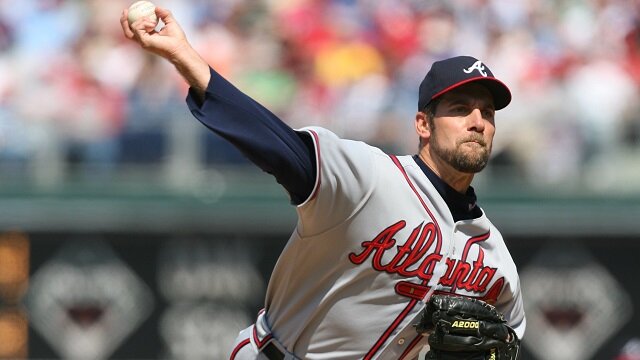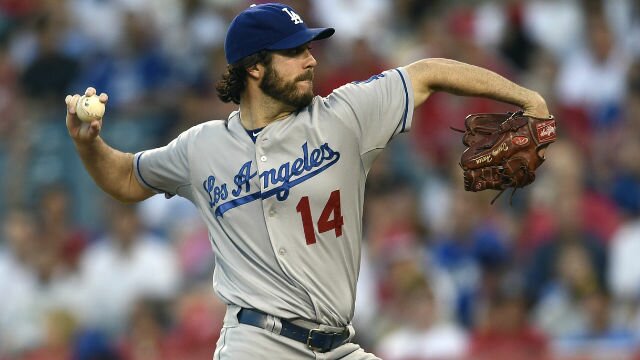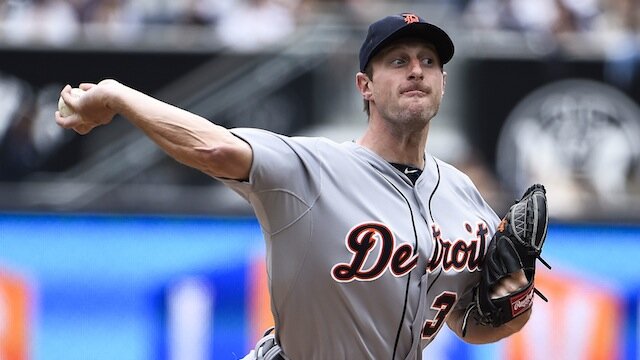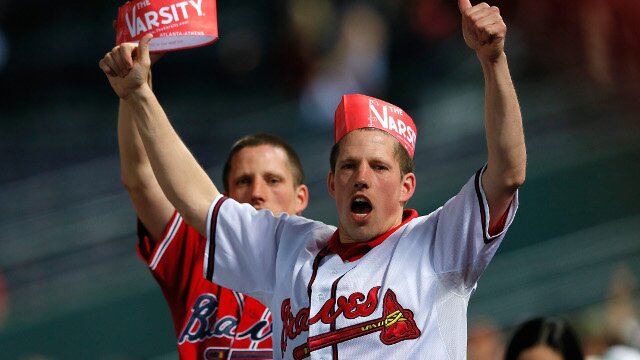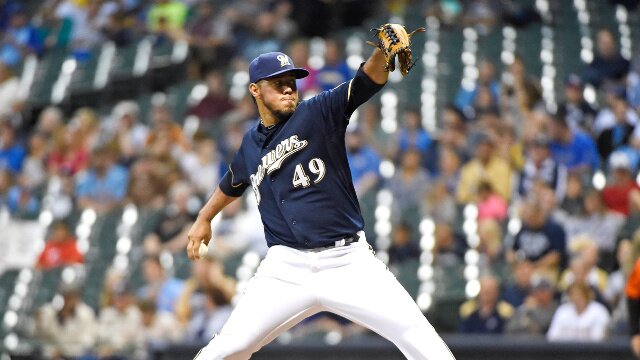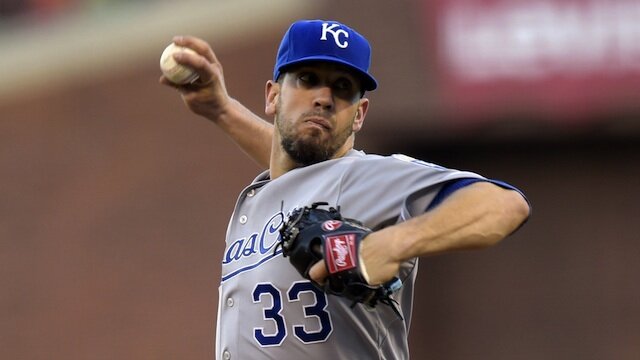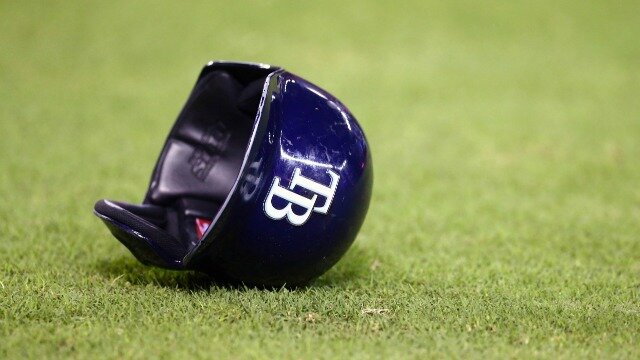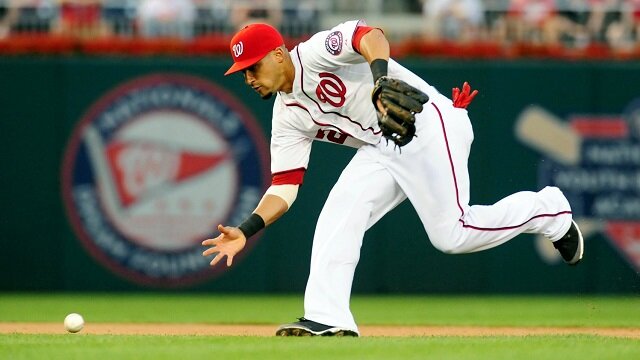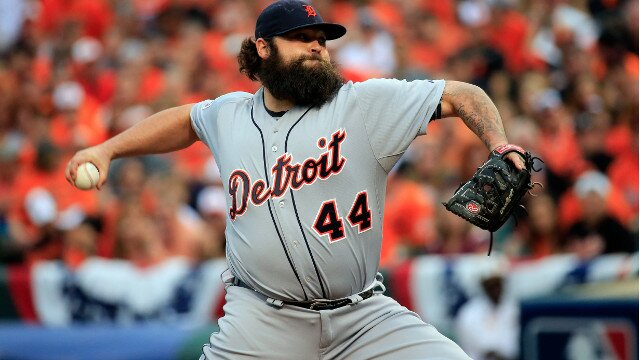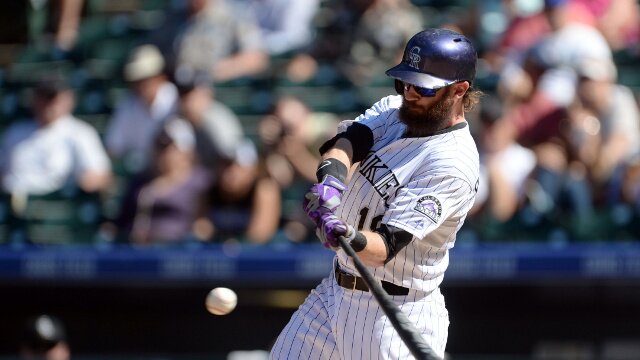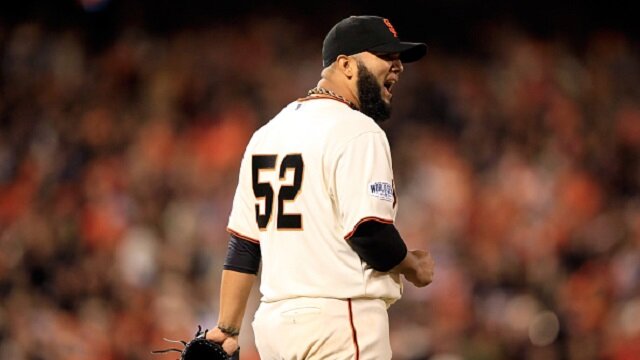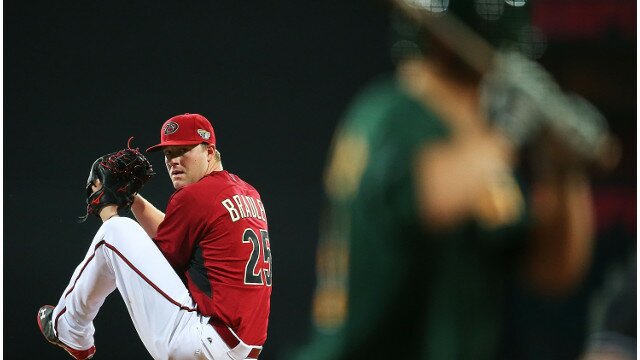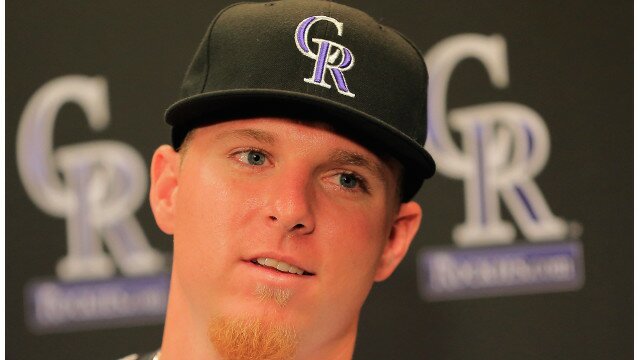Rant MLB Columnist Roundtable (1/12): What Would An “Objective” Baseball Hall Of Fame Class Look Like?
While the baseball world came out of its winter slumber with yet another MLB star changing teams thanks to a move orchestrated by Billy Beane, 2015 began with a celebration as a truly venerable class of athletes was elected to the Baseball Hall of Fame. The game’s time-honored hall of heroes is the subject of neverending debate thanks in part to the sometimes-curious decisions of the BBWAA, but even the most skeptical fan couldn’t argue with the most recent class of four too much.
But what if the Hall’s mandate changed overnight, and instead of asking its electors to vote based on “the player’s record, playing ability, integrity, sportsmanship, character, and contributions to the team(s) on which the player played,” only the on-field performance mattered? A new, “objective” Hall Of Fame (as much as that could be possible anyway), if you will? To take part in this thought experiment and more are Rant MLB columnists Drew Jenkins (@DrewJenkins77) and Brad Faber (@Brad_Faber).
Thom: This year’s Hall of Fame announcement was a bit out of the ordinary, though not necessarily unexpected. Not only did the the BBWAA elect a whopping four players, the 2015 HOF class didn’t really draw any real backlash from the baseball community and fans this time around. Did the general lack of debate surprise you?
Drew: Not too much. I thought all the candidates that got in were deserving of it. Clearly Randy Johnson is one of the best pitchers of all time, while Pedro Martinez and John Smoltz were darn good as well, and Craig Biggio was the definition of consistency. In terms of who was left off, though, I remain surprised that Jeff Bagwell hasn’t gotten in, and also at the lack of love for Lee Smith.
Brad: The lack of debate surround this class speaks to the quality of the elected players. The Big Unit, Pedro and Smoltz were all clearly first-ballot HOFers. I was glad to see that Biggio got in as well, and was surprised it took as long as it did for him. I wouldn’t have minded seeing Mike Piazza get in, though.
Thom: All four inductees are definitely more than worthy considering what the Hall represents. I think if we were to take a more quantitative approach though, things might be a little different. It’s worth noting that Smoltz and Biggio are both below Hall averages for their position per JAWS. Smoltz was a fantastic pitcher, but his seven-year prime bWAR totalled 38.8, which is not necessarily elite; taking away the name, I wonder if he’d be a first-ballot inductee to a hypothetical “Objective” HOF, so to speak.
Drew: With Smoltz, part of that is due to his time as a reliever. I think he is a clear-cut first ballot guy because he was successful as a starter and a reliever. I mean, he had a 3.13 ERA from 1992 to 2008. Not many guys can say that they were that good for that long.
Brad: Things like JAWS are definitely interesting from the standpoint of having consistency in HOF classes, but even in a more SABR-oriented era of the game, the Hall still represents things that aren’t necessarily reflected by the raw numbers. I think that some of the more traditional numbers and milestone should hold a certain amount of merit with voters (ie. Biggio’s 3,000 hits, Smoltz combination of wins and saves), and that goes even in the “Objective” HOF.
Drew: One thing that numbers like WAR7 overlooks is longevity and consistency as a significant accomplishment. Biggio was never a particularly outstanding player, and his overall career numbers are nothing to get insanely excited about. However, what he did bring was consistency, and that is more than what you can say about his contemporaries. Plus, he played any position asked of him. He was the type of guy who helped the team every day, and he did it for so long.
Thom: The “Objective” HOF idea is interesting in that both Smoltz and Biggio got a lot of love for their versatility in the actual Hall voting even though they weren’t necessarily as talented, even in context of their time, as some players on the ballot who missed out. Taking that into account, is there anything that stands out about this year’s voting?
Drew: The biggest thing for me is that everyone who got in played in the Steroid Era, yet some guys from the same era are still not getting the support they should be, even if they don’t have much of anything connecting them to steroids. In this case, I’m talking about Jeff Bagwell, Piazza, and to an extent, Gary Sheffield.
Brad: To go along with the Steroid Era inconsistency, I would say that Curt Schilling is a HOFer. I have always wanted to see Alan Trammell get in as well, but he continues to get passed over.
Thom: For what it’s worth, I think the Steroid Era bias shouldn’t prevent guys from getting elected, and I think the stance may be softening, at least for some. Piazza will probably get in next year, Bagwell should have been in already, and it’ll usher the way for the HOF wall for come down for Barry Bonds and Roger Clemens down the line. Similar to how the MVP voting has incorporated more advanced numbers, I do wonder if the next generation of HOF voters will take a less subjective approach to HOF voting.
Drew: I can definitely see a trend of people having less hard feelings as we get further away from the Steroid Era. That said, I just don’t see guys who have been specifically connected with PEDs getting in, and I don’t think they deserve to either. Voters will soften their stances on the Bagwells and Piazzas of the world, who have never been specifically implicated, but who you always had to wonder about given the era they played in.
Brad: The best-of-the-best approach to HOF voting is definitely something I can see happening as we continue to learn new ways to analyse the sport, and I do think voters will soften their hard feelings as time goes. By that same logic, I wonder if that means Pete Rose would finally be forgiven as well. The Hall does have a mandate to elect players with subjective elements like integrity and character, so it should be interesting to see how much numbers and ability will trump that.
Thom: I think the should-they-or-shouldn’t-they debate will go on for a while, and I suppose it depends on what the future vision of the HOF is. I know they didn’t complete white-wash the era, and I can see what you’re saying about the directly connected PED users, but there’s an inconsistency in how that’s been handled that doesn’t sit right. I mean, it’s not as though every player who has been inducted is at the pinnacle of high character, you know?
Thom: If we were to take all that subjective stuff out of the equation and go back to our “Objective” HOF concept, Schilling would be a first-ballot inductee and Smoltz wouldn’t be, I’d think … right?
Drew: I’m not so sure about that. I do think Schilling would be in, but really Smoltz was the better pitcher. He threw more innings, had a lower ERA, almost the same number of wins, plus Smoltz also brings in 150 saves. More advanced metrics like Schilling a little more, but still, Smoltz was a very good pitcher. In this “Objective” Hall of Fame, he certainly has a spot as a first-ballot inductee, and so does Schilling.
Brad: Smoltz and Schilling definitely make for an interesting comparison as their numbers look very similar, obviously with the big exception being Smoltz’s saves. I agree that both would be deserving, but I’m not sure who I would have voted in first. For what it is worth, Schilling’s 83.2 career fWAR is 4.5 more wins than Smoltz in fewer innings and only a few behind Pedro, so you can definitely make a strong case there . Again, this could be where traditional milestones do or don’t come into play going forward.
Thom: I wouldn’t necessarily put as much stock in Smoltz’s longevity and success as a closer. Basically, I’d take away the names and look more at the skill set that the numbers demonstrated. Schilling struck out more batters per nine, issued fewer walks, and more importantly, his best season (2002) was better than Smoltz’s best season (1996). Both are deserving, but Schilling gets in first in the “Objective” HOF. Going back to real life, was there anyone who was knocked off the ballot who you have a soft spot for?
Drew: Carlos Delgado for sure. It is not every day that you hit 473 home runs and don’t even get to stay on the ballot for more than one year. I also think Brian Giles is an underrated guy, though certainly not HOF-worthy. Jason Schmidt was also fun to watch for a couple of years, though also not even close to HOF-worthy.
Brad: I’ll go with Don Mattingly here. He didn’t have the longevity and career numbers of other guys, but there was a stretch where he was quite arguably the best hitter in the game, and that’s worth something. It would be nice if he could be acknowledged for that in some way.
Thom: Delgado stands out for me as well. I know I was just suggesting that HOF milestones may not mean as much down the line, but those homers are definitely hard to ignore in today’s approach. I’m definitely surprised that he only got 21 votes. I mean, even Aaron Boone got two. Speaking of HOF misses, the Golden Era committee did not elect anyone this year. Your thoughts?
Brad: Especially considering that they don’t get to do this every year, I was definitely a bit surprised that Jim Kaat didn’t get in with his career numbers.
Drew: I’m a strong proponent that Minnie Minoso should be a Hall of Famer. He was a pretty good player in his day, but really, it goes past that. He went from being the first black player to played for the Chicago White Sox to earning the nickname “Mr. White Sox.” It takes a special kind of character to do that in the era that he played in. Plus he played professional baseball in seven different decades, which is an achievement in and of itself.
Thom: Looking ahead to 2016, do you see any first-ballot Hall-of-Famers?
Brad: Ken Griffey Jr., for sure. Maybe Trevor Hoffman too.
Drew: Definitely Griffey, one of the more impressive bats of an era full of them.
Thom: It’s interesting that Jim Edmonds is rated by Bill James has having a below-average chance of getting inducted, period, yet he has the second-highest JAWS and WAR7 among the first-timers after Griffey. It’s worth noting that Griffey slashed .284/.370/.538, while Edmonds put up .284/.376/.527. Of course, Edmonds is known more for his defense. Do you think he’ll get in eventually?
Drew: I see Edmonds as deserving of being a first-ballot guy — a great hitter and also a good defender. Really, he was the guy you want on your team every day. That said, he doesn’t get much public recognition, and I think that will keep him from being a first-ballot inductee, though he should get in soon after.
Brad: I was always a big Edmonds fan, but also don’t see him as a first-ballot HOFer. I’m not saying he won’t get in eventually, though. As more advanced metrics continue to be used in voting and people may more attention to defense as opposed to batting milestones, I think Edmonds will have his day.
Thom: Looking at the 2016 ballot and going by JAWS or bWAR (or both), who is “worst” player that you think will get inducted? Not necessarily next year, but through the entirety of the player’s eligibility.
Drew: I mean, not that he’s overrated or a bad player by any means, but Piazza probably the worst who will get in from that ballot.
Brad: Taking the numbers-only approach, I’m have to go with Piazza as well. For as great of a hitter as he was, his value may have taken a hit from his defense behind the plate.
Thom: On the flip side, who is the best player that you think will miss out? Aside from Clemens and Bonds, that is.
Drew: Mike Mussina. He’s a very good pitcher who has gotten little love in his first three years on the ballot.
Brad: Trammell will be on the ballot for the 15th year in 2016. I hate to say it, but I think that it might be him. Another notable snub for quite a few years now has been Fred McGriff, and I think he’ll continue to get passed by.
Thom: I’ll go with Tim Raines — great player, but just doesn’t have enough momentum behind his name to break through. If you were given a HOF ballot for 2016, who would you vote for?
Brad: Piazza, Bagwell, Schilling, Trammell, McGriff, Hoffman, Sheffield and Griffey.
Drew: Piazza, Bagwell, Lee Smith, Hoffman, Edmonds, Griffey and Mussina.
Thom: Last one, just to finish off on our thought experiment. If you were given a 2016 ballot for the hypothetical “Objective” HOF, where the mandate was to enshrine the best players based on a combination of advanced stats, counting stats, milestones and prime numbers, who would be on it?
Drew: Bonds, Clemens, Schilling, Sammy Sosa, Mark McGwire, Piazza, Bagwell, Edmonds, Griffey and Sheffield.
Brad: Bonds, Clemens, McGwire, Sosa, Pete Rose, Griffey, McGriff, Sheffield, Schilling and Larry Walker (I think people hold Coors Fields against him).
The stance on Steroid Era era should likely continue to soften going forward, but change is not necessarily the BBWAA’s strongest suit as a whole, and it should take some time before the likes of Bonds and Clemens finds their way to Cooperstown — if ever. That said, while the results would definitely be different in an “Objective” Hall-Of-Fame, one thing remains clear: whether you are going with Cooperstown’s subjective mandate or one solely based on the numbers, there is always room for debate in the Hall.
Follow Thom on Twitter @ThomTsang, or add him to your network on Google.
5 Players the Miami Marlins Should Still Trade
The Miami Marlins are looking to improve on last season's 77-85 record. Here are five players they should still be looking to trade. Read More
Max Scherzer Would Make Nationals WS Favorites
Reports indicate Max Scherzer is discussing a seven-year deal with the Nationals as well as another team or two. Adding him would make Washington World Series favorites in 2015. Read More
Braves GM Optimistic To Call Team 2015 Contenders
The Atlanta Braves appear to be looking to make a huge push in 2017, but don't tell GM John Hart that. Hart believes the Braves can contend this season. Read More
Yovani Gallardo Would Be A Great Fit For Rangers
It has been reported that the Texas Rangers are nearing a deal for Yovani Gallardo. See why he would be a nice fit in their rotation. Read More
Top 5 Updated Landing Spots For James Shields
James Shields remains one of the hottest commodities available in MLB free agency. Find out where he could end up. Read More
Rays' Top 10 Prospects Heading Into 2015
Through multiple trades, the Tampa Bay Rays have restocked their farm system. Here's a look at their top 10 prospects for 2015. Read More
Mets Should Trade For Ian Desmond For 2015
The New York Mets should trade for Ian Desmond, despite knowing he'll be a free agent after the 2015 season. Read More
Joba Chamberlain Perfect for Milwaukee Brewers
With the Milwaukee Brewers running out of options for relieft help, Joba Chamberlain is the perfect fit. Find out exactly why here. Read More
Orioles Should Be Keeping Tabs On Charlie Blackmon
The Colorado Rockies are reportedly open to dealing outfielder Charlie Blackmon. Find out why he would be a great fit for the Baltimore Orioles. Read More
Yusmeiro Petit Rotation-Worthy For SF Giants
Yusmeiro Petit is a better starting rotation option than Tim Lincecum for the San Francisco Giants. Read More
Diamondbacks' Top 5 Pitching Prospects In 2015
A list of the Arizona Diamondbacks' top five pitching prospects heading into 2015. Read More
Rockies' Top 5 Pitching Prospects in 2015
A list of the Colorado Rockies' top five pitching prospects heading into 2015. Read More
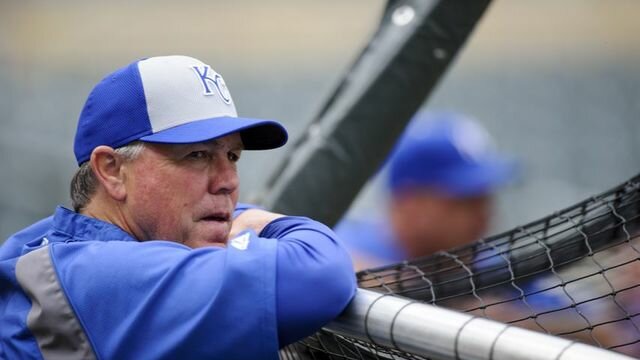
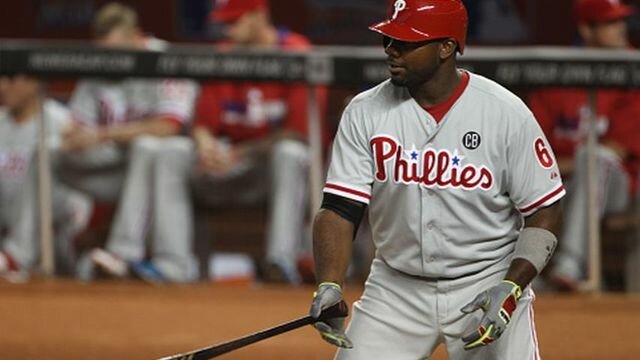
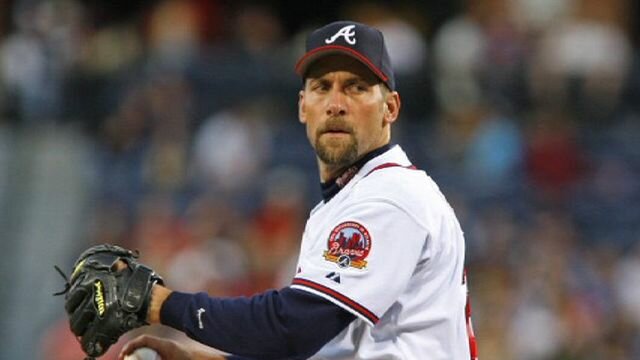
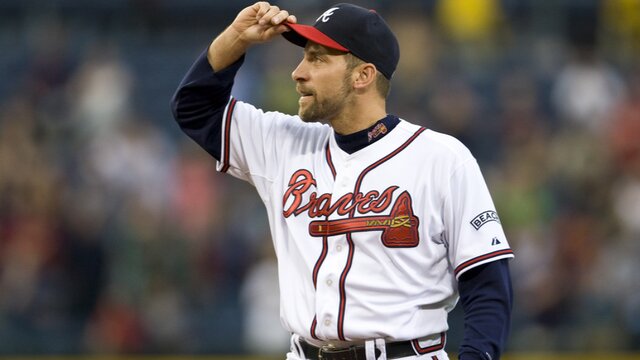
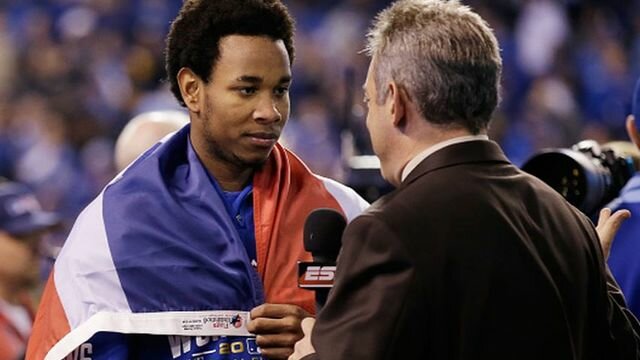
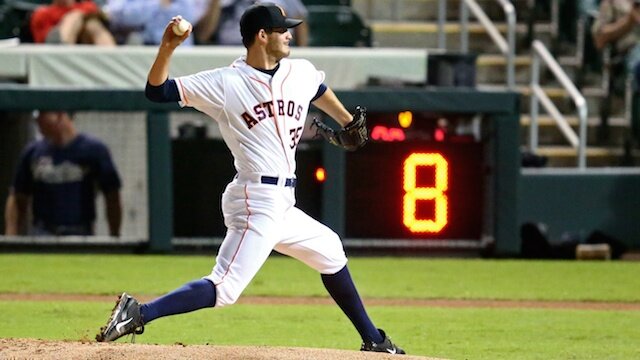
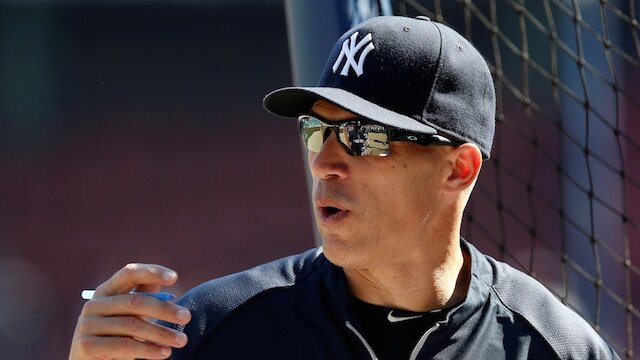
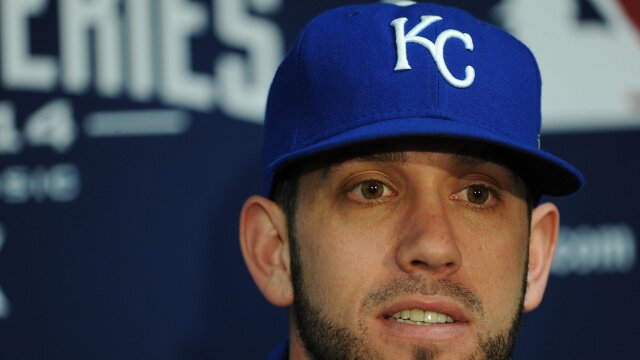
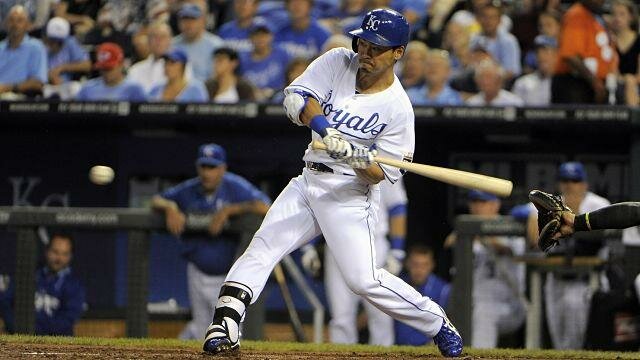
 @ThomTsang
@ThomTsang 